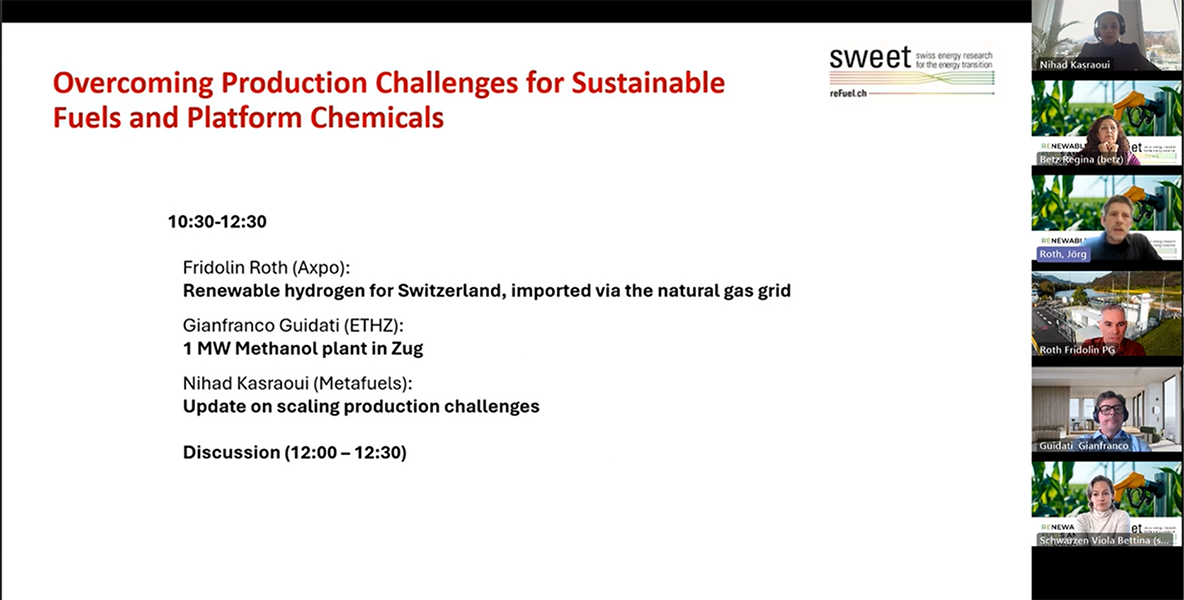Sustainable fuels and basic chemicals for Switzerland

A Memorandum of Understanding on sustainable energy and energy technologies was signed during the visit of Swiss President Alain Berset to Oman and Empa researcher Christian Bach, as co-coordinator of reFuel.ch, was able to receive a corresponding "Letter of Interest" from the Omani Ambassador to Switzerland, H.E. Mahmood Al Hassani, for a corresponding collaboration; the reFuel.ch consortium has therefore arrived at just the right time. Although these are only the first steps on the long road to supplying Switzerland with sustainably produced fuels and basic chemicals, they demonstrate the international dimension of reFuel.ch, which brings together more than 60 project partners from the entire value chain.
The signing has already been followed by the first concrete steps. For example, a reFuel.ch delegation of 15 business and research representatives will be travelling to Oman in December to hold talks with the Omani Ministry of Energy and Minerals on the sidelines of the Green Hydrogen Summit there. The talks will focus on the development of approaches for the production of sustainable energy sources and basic chemicals as well as regulatory and market solutions.
Another - European - case study will soon be launched in southern Spain. At the same time, the efficiency and therefore also the costs of currently available processes for the production of sustainable energy sources are to be significantly improved. As a centre of research and technology, Switzerland can make an important contribution to solving the global climate problem.

International cooperation for more efficient production
The SFOE-funded consortium is investigating how fossil fuels can be replaced by sustainable energy sources, for example in aviation and industrial processes. The majority of these will come from abroad. Countries in the Earth's Sun Belt could play an important role here. Accordingly, the researchers will be looking closely at foreign production, regulatory and legal framework conditions and the issue of dependency. In order for Switzerland to meet its demand for sustainable fuels and basic chemicals amounting to 30 to 60 terawatt hours (approx. 3 to 6 billion litres of diesel equivalent), it needs a PV area of 200 to 400 km2 on site, which is slightly less than the area of Lake Constance. Two to three times more electricity can be generated per square metre of PV area in the Sun Belt than in Switzerland. In future, the electricity generated in this way will be the energy basis for the production of sustainable fuels and basic chemicals.
Within Switzerland, the consortium is focussing on the increased energetic use of farmyard manure (especially slurry) for further development into gaseous or liquid energy sources and on increasing the efficiency of production processes for synthetic fuels.

.jpg)

